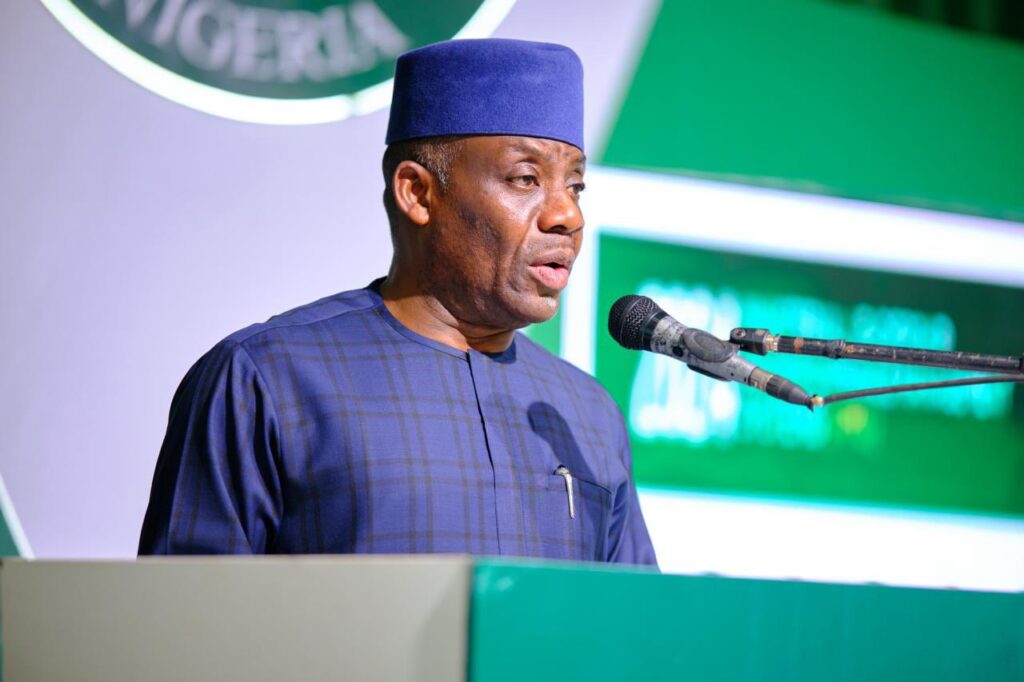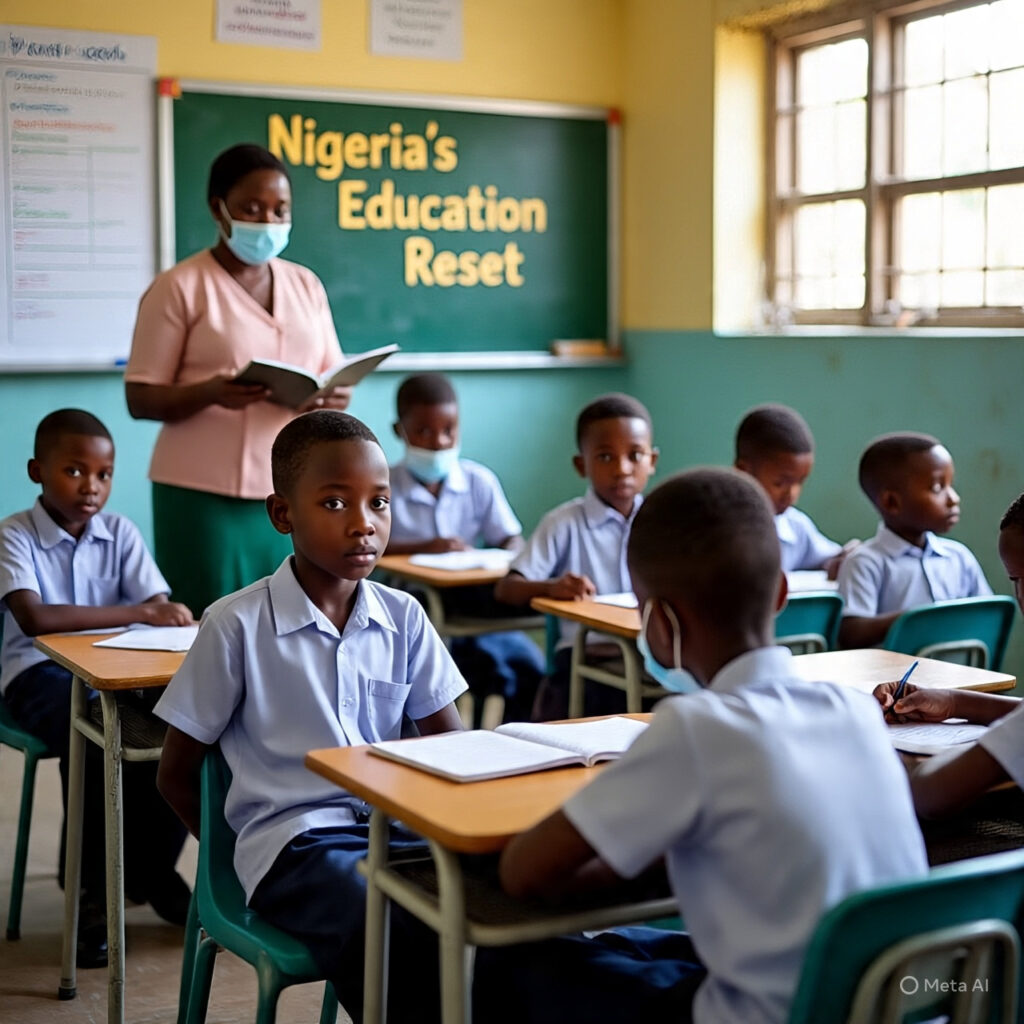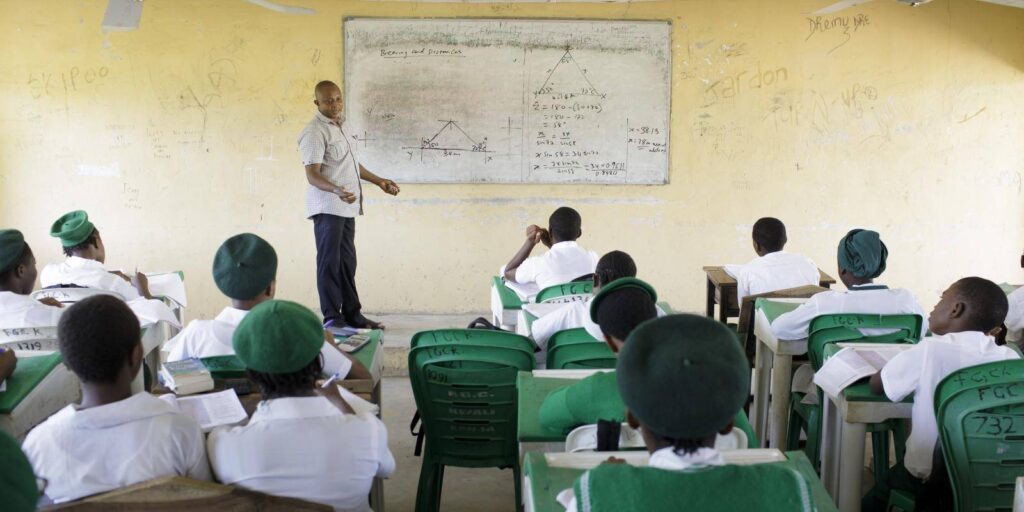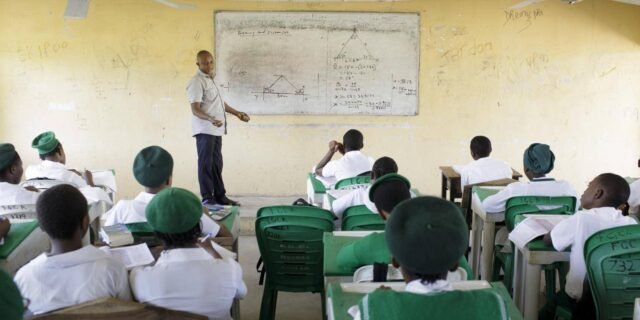After two decades of waiting, Nigeria has finally taken a bold step to reform its national curriculum. The long-overdue review is now underway, and the Minister of Education, Dr Tunji Alausa, is leading the charge. For many teachers, parents, and education experts, this is more than a policy shift—it is the beginning of a much-needed renewal for schools across the country.
The new curriculum is not just about revising textbooks. It is about preparing Nigerian children for the realities of the 21st century, while still grounding them in history and national identity. One of the highlights is the return of Nigerian history as a core subject across all levels of basic education. For years, many children grew up without a strong sense of where the country came from, but this gap is now being addressed.
Dr Alausa explained that the reform seeks to balance global competitiveness with national priorities. By making education more relevant, the government hopes to produce a generation of problem solvers and innovators, rather than simply exam candidates. In his words, “We cannot keep teaching our children with outdated methods when the world is moving fast in science, technology, and innovation. Education must work for Nigeria’s future.”
Table of Contents

Smarter Learning with Streamlined Subjects in the New Curriculum
One of the most striking changes is the reduction in the number of subjects taught at the basic and secondary levels. For years, Nigerian students have been overwhelmed with an overloaded timetable—sometimes facing over 70 subjects presented by different exam bodies. This left many struggling to master basics, while teachers raced to cover too much ground.
The reformed curriculum introduces a streamlined approach. Pupils in Primary 1–3 will now have between 9 and 12 subjects, while Senior Secondary students will take between 8 and 11. The idea is simple: fewer subjects, deeper understanding. Instead of memorising shallow facts in many areas, students will now spend more time building competence in core skills.
But the reform is not only about cutting down. New subjects are being introduced to meet modern needs. Coding, robotics, data literacy, and even augmented reality are now officially part of the learning framework. This ensures that Nigerian learners are not left behind in the digital economy. Children will be able to learn critical thinking and problem-solving from an early stage, giving them a head start in fields that will shape the global economy.
The reform also encourages practical, project-based learning. Rather than teaching theory alone, students will be asked to apply their knowledge in real-world situations. This could mean building small tech projects, conducting community research, or solving local environmental problems as part of their learning. Education, in this sense, becomes an active process rather than a passive one.

Teachers and Technology at the Centre of Reform
No matter how well designed, a curriculum is only as effective as the teachers who deliver it. This is why many education stakeholders stress that teacher training is the real battleground of Nigeria’s push for reforms. Teachers will need not just content updates, but also training in modern methods and the use of technology.
In Oyo State, for example, the partnership with ed-tech company EIDU has shown how digital tools can change classrooms. Pupils in pilot schools are using AI-backed lessons and smartphone applications to improve literacy and numeracy. A headmaster in Iseyin described the first day the tools were introduced: “That morning, the children were visibly excited. For the first time, they were experiencing technology-aided learning, and it changed the way they engaged with lessons.” Early reports from the programme show that pupils are learning faster and enjoying school more.
Enugu State is also making strides with its Smart Green Schools project. With support from international partners, the state is building over 260 schools with modern facilities and a curriculum designed for experiential, hands-on learning. These schools are expected to serve more than a quarter of a million students, combining strong infrastructure with modern pedagogy.
Still, challenges remain. Many teachers across Nigeria are underpaid, overstretched, and undertrained. Without heavy investment in teacher welfare and retraining, the reforms risk remaining on paper. Integrating technology will also demand consistent electricity, internet access, and devices—resources still scarce in many rural schools. Bridging this gap will be critical if reforms are to succeed nationwide.
Opportunities and Challenges
Nigeria’s push for education reforms is ambitious, but it comes with challenges that cannot be ignored. First is the massive teacher shortage. By current estimates, the country needs hundreds of thousands of new teachers to meet basic education demand. Without this workforce, the dream of reform cannot be fully realised.
Second is infrastructure. Many schools across rural Nigeria still lack basic amenities—desks, toilets, or even roofs. Introducing robotics or coding to such environments without first addressing physical infrastructure risks deepens inequality. Children in cities may thrive under the new curriculum, while those in poor communities remain left behind.
Third is funding and political will. Education has historically suffered from inconsistent funding, with budgetary allocations often falling short of UNESCO’s recommended 15–20% of national expenditure. Sustained investment will be required to implement reforms, train teachers, and provide technology. Civil society and private partners must also be part of the solution, from parents’ associations to tech companies willing to support digital learning.

Perhaps the biggest challenge is the number of out-of-school children. Nigeria still has over 10 million children not attending school—the highest figure in the world. Without bringing them into classrooms, even the best curriculum reforms will not reach the most vulnerable. Addressing poverty, insecurity, and cultural barriers is essential to ensure reforms truly leave no child behind.
Yet, the opportunities are enormous. A well-designed and well-executed education reform could help Nigeria unlock its human capital potential. With the country’s youthful population—over 60% under the age of 25—education reform is directly linked to national growth. Properly educated, this generation could become the engineers, doctors, innovators, and civic leaders who push Nigeria into global relevance.
Join Our Social Media Channels:
WhatsApp: NaijaEyes
Facebook: NaijaEyes
Twitter: NaijaEyes
Instagram: NaijaEyes
TikTok: NaijaEyes
READ THE LATEST EDUCATION NEWS














![Tiwa Savage Slams ‘Unfair’ Exclusion of Tems from Afrobeats Big 3 Ranking [VIDEO] Tiwa Savage](https://naijaeyesblog.com/wp-content/uploads/2025/09/Tiwa-Savage-tems-180x135.avif)
























